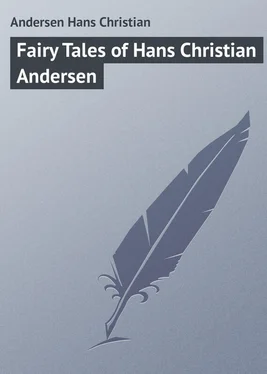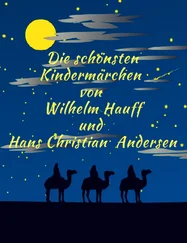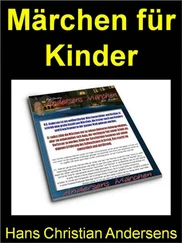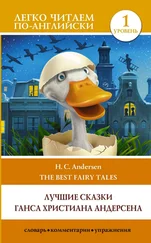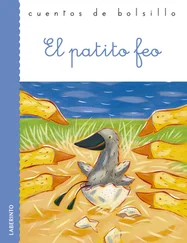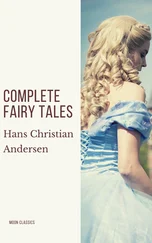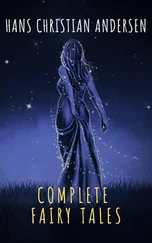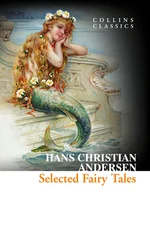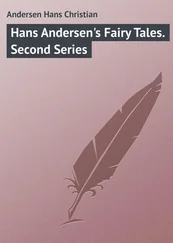Andersen Hans - Fairy Tales of Hans Christian Andersen
Здесь есть возможность читать онлайн «Andersen Hans - Fairy Tales of Hans Christian Andersen» — ознакомительный отрывок электронной книги совершенно бесплатно, а после прочтения отрывка купить полную версию. В некоторых случаях можно слушать аудио, скачать через торрент в формате fb2 и присутствует краткое содержание. Жанр: foreign_language, foreign_prose, на английском языке. Описание произведения, (предисловие) а так же отзывы посетителей доступны на портале библиотеки ЛибКат.
- Название:Fairy Tales of Hans Christian Andersen
- Автор:
- Жанр:
- Год:неизвестен
- ISBN:нет данных
- Рейтинг книги:5 / 5. Голосов: 1
-
Избранное:Добавить в избранное
- Отзывы:
-
Ваша оценка:
- 100
- 1
- 2
- 3
- 4
- 5
Fairy Tales of Hans Christian Andersen: краткое содержание, описание и аннотация
Предлагаем к чтению аннотацию, описание, краткое содержание или предисловие (зависит от того, что написал сам автор книги «Fairy Tales of Hans Christian Andersen»). Если вы не нашли необходимую информацию о книге — напишите в комментариях, мы постараемся отыскать её.
Fairy Tales of Hans Christian Andersen — читать онлайн ознакомительный отрывок
Ниже представлен текст книги, разбитый по страницам. Система сохранения места последней прочитанной страницы, позволяет с удобством читать онлайн бесплатно книгу «Fairy Tales of Hans Christian Andersen», без необходимости каждый раз заново искать на чём Вы остановились. Поставьте закладку, и сможете в любой момент перейти на страницу, на которой закончили чтение.
Интервал:
Закладка:
Her father was groom of the Chambers, which is a high office at court, and she knew it. "I am a child of the court," she said; now she might just as well have been a child of the cellar, for no one can help his birth; and then she told the other children that she was well-born, and said that no one who was not well-born could rise in the world. It was no use to read and be industrious, for if a person was not well-born, he could never achieve anything. "And those whose names end with 'sen,'" said she, "can never be anything at all. We must put our arms akimbo, and make the elbow quite pointed, so as to keep these 'sen' people at a great distance." And then she stuck out her pretty little arms, and made the elbows quite pointed, to show how it was to be done; and her little arms were very pretty, for she was a sweet-looking child.
But the little daughter of the merchant became very angry at this speech, for her father's name was Petersen, and she knew that the name ended in "sen," and therefore she said as proudly as she could, "But my papa can buy a hundred dollars' worth of bonbons, and give them away to children. Can your papa do that?"
"Yes; and my papa," said the little daughter of the editor of a paper, "my papa can put your papa and everybody's papa into the newspaper. All sorts of people are afraid of him, my mamma says, for he can do as he likes with the paper." And the little maiden looked exceedingly proud, as if she had been a real princess, who may be expected to look proud.
But outside the door, which stood ajar, was a poor boy, peeping through the crack of the door. He was of such a lowly station that he had not been allowed even to enter the room. He had been turning the spit for the cook, and she had given him permission to stand behind the door and peep in at the well-dressed children, who were having such a merry time within; and for him that was a great deal. "Oh, if I could be one of them," thought he, and then he heard what was said about names, which was quite enough to make him more unhappy. His parents at home had not even a penny to spare to buy a newspaper, much less could they write in one; and worse than all, his father's name, and of course his own, ended in "sen," and therefore he could never turn out well, which was a very sad thought. But after all, he had been born into the world, and the station of life had been chosen for him, therefore he must be content.
And this is what happened on that evening.
Many years passed, and most of the children became grown-up persons.
There stood a splendid house in the town, filled with all kinds of beautiful and valuable objects. Everybody wished to see it, and people even came in from the country round to be permitted to view the treasures it contained.
Which of the children whose prattle we have described, could call this house his own? One would suppose it very easy to guess. No, no; it is not so very easy. The house belonged to the poor little boy who had stood on that night behind the door. He had really become something great, although his name ended in "sen," – for it was Thorwaldsen.
And the three other children – the children of good birth, of money, and of intellectual pride, – well, they were respected and honored in the world, for they had been well provided for by birth and position, and they had no cause to reproach themselves with what they had thought and spoken on that evening long ago, for, after all, it was mere "children's prattle."
THE FARM-YARD COCK AND THE WEATHER-COCK
There were two cocks – one on the dung-hill, the other on the roof. They were both arrogant, but which of the two rendered most service? Tell us your opinion – we'll keep to ours just the same though.
The poultry yard was divided by some planks from another yard in which there was a dung-hill, and on the dung-hill lay and grew a large cucumber which was conscious of being a hot-bed plant.
"One is born to that," said the cucumber to itself. "Not all can be born cucumbers; there must be other things, too. The hens, the ducks, and all the animals in the next yard are creatures too. Now I have a great opinion of the yard cock on the plank; he is certainly of much more importance than the weather-cock who is placed so high and can't even creak, much less crow. The latter has neither hens nor chicks, and only thinks of himself and perspires verdigris. No, the yard cock is really a cock! His step is a dance! His crowing is music, and wherever he goes one knows what a trumpeter is like! If he would only come in here! Even if he ate me up stump, stalk, and all, and I had to dissolve in his body, it would be a happy death," said the cucumber.
In the night there was a terrible storm. The hens, chicks, and even the cock sought shelter; the wind tore down the planks between the two yards with a crash; the tiles came tumbling down, but the weather-cock sat firm. He did not even turn round, for he could not; and yet he was young and freshly cast, but prudent and sedate. He had been born old, and did not at all resemble the birds flying in the air – the sparrows, and the swallows; no, he despised them, these mean little piping birds, these common whistlers. He admitted that the pigeons, large and white and shining like mother-o'-pearl, looked like a kind of weather-cock; but they were fat and stupid, and all their thoughts and endeavours were directed to filling themselves with food, and besides, they were tiresome things to converse with. The birds of passage had also paid the weather-cock a visit and told him of foreign countries, of airy caravans and robber stories that made one's hair stand on end. All this was new and interesting; that is, for the first time, but afterwards, as the weather-cock found out, they repeated themselves and always told the same stories, and that's very tedious, and there was no one with whom one could associate, for one and all were stale and small-minded.
"The world is no good!" he said. "Everything in it is so stupid."
The weather-cock was puffed up, and that quality would have made him interesting in the eyes of the cucumber if it had known it, but it had eyes only for the yard cock, who was now in the yard with it.
The wind had blown the planks, but the storm was over.
"What do you think of that crowing?" said the yard cock to the hens and chickens. "It was a little rough – it wanted elegance."
And the hens and chickens came up on the dung-hill, and the cock strutted about like a lord.
"Garden plant!" he said to the cucumber, and in that one word his deep learning showed itself, and it forgot that he was pecking at her and eating it up. "A happy death!"
The hens and the chickens came, for where one runs the others run too; they clucked, and chirped, and looked at the cock, and were proud that he was of their kind.
"Cock-a-doodle-doo!" he crowed, "the chickens will grow up into great hens at once, if I cry it out in the poultry-yard of the world!"
And hens and chicks clucked and chirped, and the cock announced a great piece of news.
"A cock can lay an egg! And do you know what's in that egg? A basilisk. No one can stand the sight of such a thing; people know that, and now you know it too – you know what is in me, and what a champion of all cocks I am!"
With that the yard cock flapped his wings, made his comb swell up, and crowed again; and they all shuddered, the hens and the little chicks – but they were very proud that one of their number was such a champion of all cocks. They clucked and chirped till the weather-cock heard; he heard it; but he did not stir.
"Everything is very stupid," the weather-cock said to himself. "The yard cock lays no eggs, and I am too lazy to do so; if I liked, I could lay a wind-egg. But the world is not worth even a wind-egg. Everything is so stupid! I don't want to sit here any longer."
Читать дальшеИнтервал:
Закладка:
Похожие книги на «Fairy Tales of Hans Christian Andersen»
Представляем Вашему вниманию похожие книги на «Fairy Tales of Hans Christian Andersen» списком для выбора. Мы отобрали схожую по названию и смыслу литературу в надежде предоставить читателям больше вариантов отыскать новые, интересные, ещё непрочитанные произведения.
Обсуждение, отзывы о книге «Fairy Tales of Hans Christian Andersen» и просто собственные мнения читателей. Оставьте ваши комментарии, напишите, что Вы думаете о произведении, его смысле или главных героях. Укажите что конкретно понравилось, а что нет, и почему Вы так считаете.
